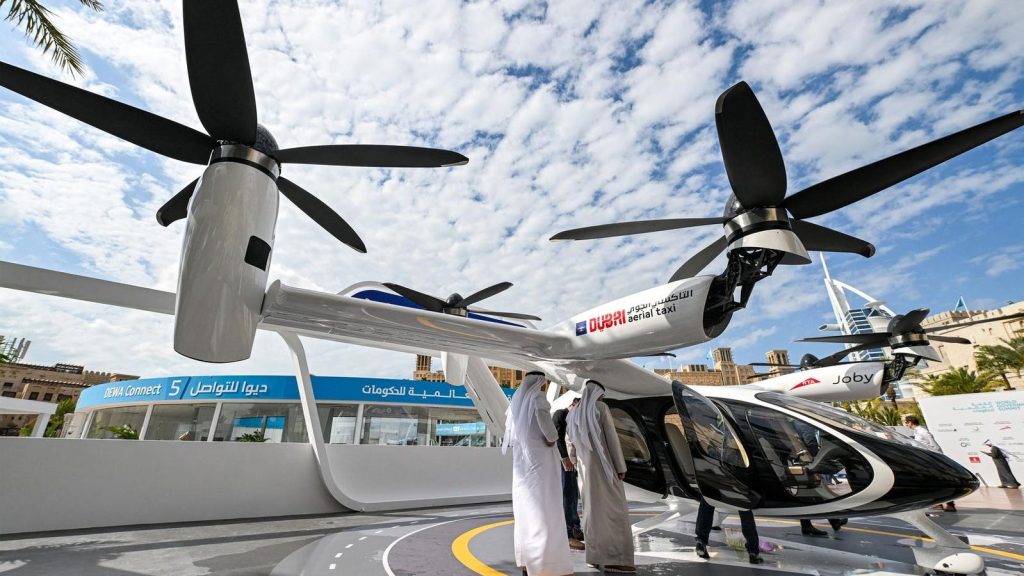Joby Aviation’s partnership with Toyota Motor marks a significant milestone in the development of electric air taxis. With Toyota’s additional $500 million investment in Joby, the U.S. company is well-positioned to launch its commercial passenger services as early as next year. This investment comes on top of Toyota’s previous $394 million capital injection in Joby in 2020, solidifying the automaker’s commitment to sustainable transportation solutions.
The fresh funding from Toyota will be used by Joby to support the certification and commercial production of its electric air taxis. Joby aims to start commercial services in Dubai by late 2025, offering rides from the Dubai International Airport to the Palm Jumeirah island. The company’s aircraft, capable of carrying four passengers and a pilot at speeds of up to 200 miles per hour, has already demonstrated its capabilities in test flights, flying over 150 miles on a single charge.
Tetsuo Ogawa, the president and CEO of Toyota’s North American operations, expressed his excitement about Joby’s progress, stating that sustainable flight is essential for addressing today’s mobility challenges. Toyota’s investment in Joby is part of its strategy to explore and invest in futuristic transportation technologies, complementing its existing lineup of electric vehicles and hybrid cars. Toyota Ventures, the automaker’s Silicon Valley venture capital arm, has also invested in other innovative companies such as May Mobility and Ion Storage Systems.
Joby’s success has attracted investments from a diverse range of companies, including SK Telecom, Uber Technologies, and now Toyota. The company’s merger with a blank check company in 2021 valued it at $6.6 billion, showcasing its potential in the electric air taxi market. With the support of Toyota and other strategic investors, Joby is well-positioned to lead the industry and bring electric air taxis to the mainstream.
Industry analysts predict that the electric flying taxi market could reach over $1 trillion by 2040, presenting significant growth opportunities for companies like Joby and its competitors. Other companies, such as Hanwha and Tencent, are also investing in the development of air taxis, highlighting the global interest in this nascent space. As technology continues to advance and regulations evolve, electric air taxis are expected to revolutionize urban transportation and provide a sustainable alternative to traditional modes of travel.
With Toyota’s continued support and investment in Joby Aviation, the future of electric air taxis looks promising. As the industry continues to mature and commercial services launch, more passengers may soon experience the convenience and efficiency of electric air travel. Joby’s innovative approach to sustainable transportation, combined with Toyota’s expertise in automotive technology, has the potential to reshape the way people commute and travel in the future.















